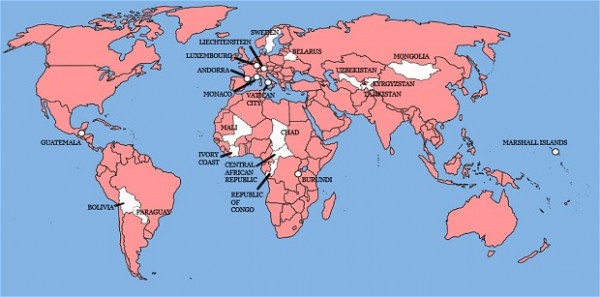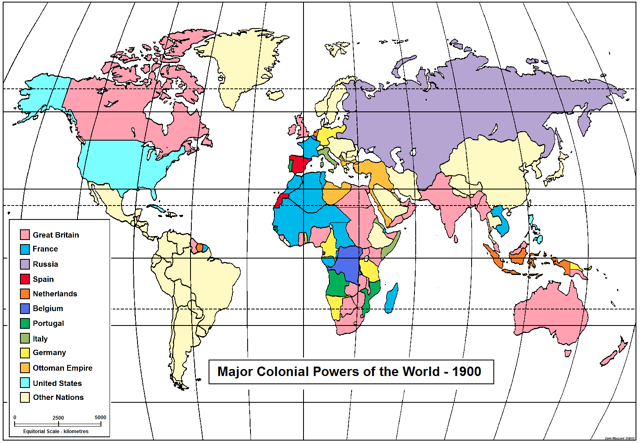British Imperialism
Probably the greatest leader of colonialism and imperialism was England. By 1921, Britain ruled about a quarter of the whole world's population.
The British empire covered around a quarter of the Earth's surface. Britain's motivations for imperialism were simple: gaining resources and more capital. With that, though, came a sense of responsibility. Britain felt a responsibility towards the regions it colonized, believing that the peoples they conquered needed to be civilized. Britain believed their rule would prevent anarchy and chaos. They also saw their ownership of the world as God's will.
This culture of imperialism is particularly important when considering Phileas Fogg of both Around the World in 80 Days and 80 Days. Fogg is a product of the culture and in many ways symbolizes the imperialism of Britain. Fogg often makes comments that refer to how the whole world is influenced by and safe for an Englishman, which shows his imperialist mindset. For more information about how Fogg relates to the British culture of imperialism, see Marissa Bournias' essay.

This image, showing in red all territories and countries that were ever owned by Britain, clearly demonstrates Britain's colonial ambitions.

This image shows (in pink) what countries were under British rule around the time of Around the World in 80 Days.
For more information on these regions of the world at this time, visit our Geographies page.
Learn more about the novel Around the World in 80 Days by Jules Verne.
Learn more about the history of Victorian-era colonialism during the 1800s
This page compiled by Kaytlin Jacoby & Angie James.